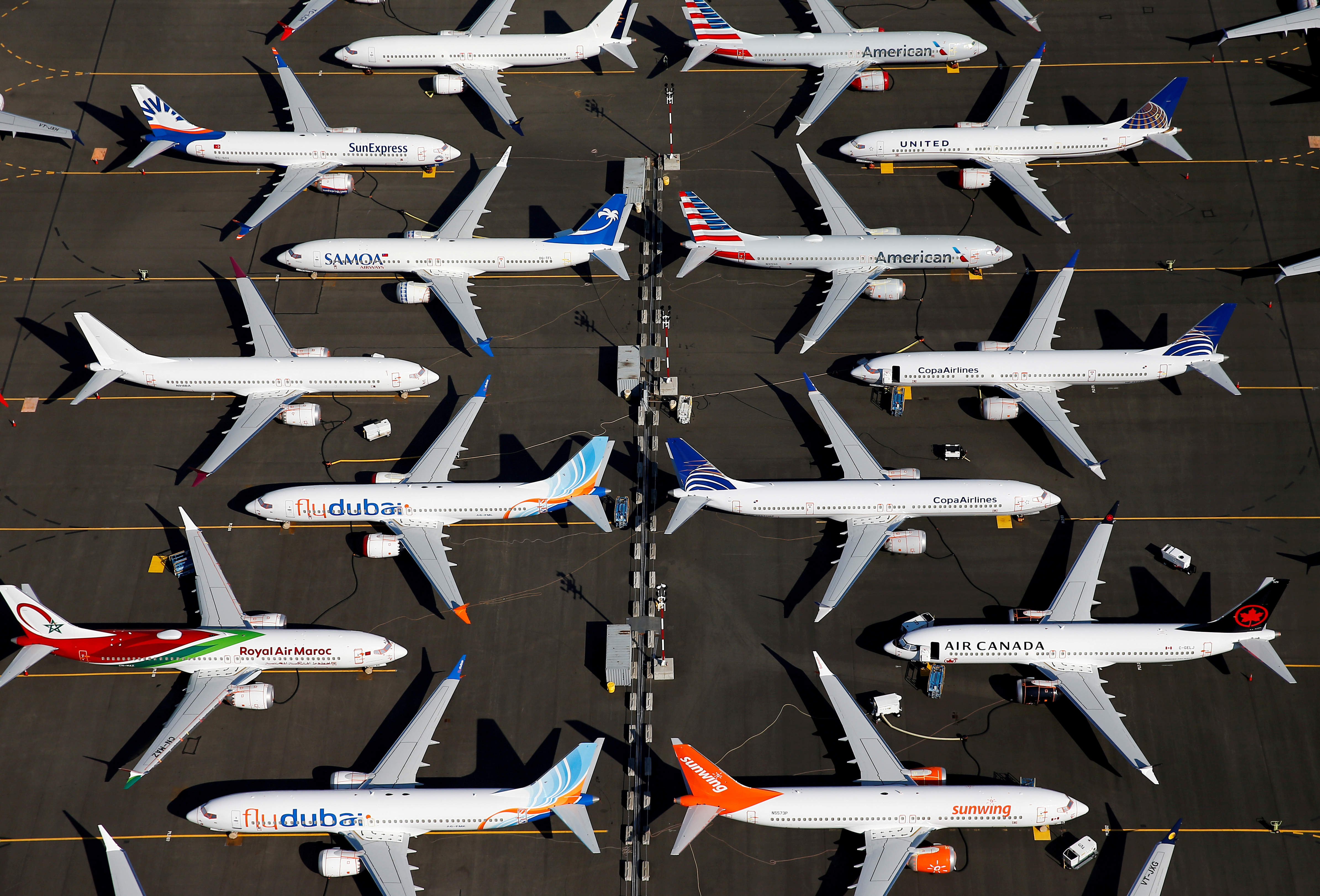- Fitch Ratings downgraded its outlook for Boeing to “negative” from “stable” amid continued problems surrounding the still-grounded 737 Max aircraft.
- The ratings agency said the damage to Boeing’s image, along with costs associated with the 737 Max remaining grounded, will be important to watch over the next year.
- Boeing has struggled since two deadly crashes led to the 737 Max’s grounding by the FAA. Now, the plane may not return to service until 2020.
- Watch Boeing trade live on Markets Insider.
Boeing is facing more backlash from problems with its 737 Max aircraft.
Fitch Ratings downgraded the company’s credit outlook to “negative” from “stable” on Monday, becoming the first of the three major agencies to do so. Shares of Boeing slid as much as 1.5% on the downgrade, despite Fitch affirming its “A” rating on its long-term and senior unsecured debt ratings.
The revised outlook comes after increased uncertainty over when the 737 Max airplane will return to service. The plane has been grounded by the Federal Aviation Administration since March following two deadly crashes while Boeing sorts out further issues with the plane’s software and retrains pilots on the aircraft. Boeing stock sunk last week on the news that the plane’s return to service might not be until 2020.
The company has said that it will take a nearly $5 billion dollar hit on the grounded planes, and that cost could rise the longer that the aircraft stays out of service.
"The MAX situation also presents significant public relations challenges, and the impact on Boeing's reputation and brand will be a watch item for the next year or more," Fitch analysts wrote in a release Monday.
The situation will also "reduce much of the financial cushion Boeing has at the current 'A' rating, leaving the company more exposed to other unforeseen events or industry developments," the analysts said.
Fitch says the slowed production rate of new 737 Max planes will also hurt Boeing going further. The ratings agency suspects that there will be lingering damage to Boeing's operating margin for years to come because of the problems with the aircraft.
In addition, Fitch says the costs associated with investigations and lawsuits will be a drag on the company, as pilots and airlines have already begun to demand payback from Boeing after the 737 Max disasters.
Analysts at JPMorgan also expect that problems with the 737 Max will be a drag on the US's second quarter GDP. Aircraft shipments represent about 0.6% of total GDP, meaning that a decrease in Boeing's output will likely drag down US GDP in the second quarter.
The problems that Boeing is facing has also had a negative impact on other parts of commercial travel. Airlines are now scrambling to cover flights of grounded planes to contend with demand during the busy holiday season.
Shares of Boeing are up roughly 16% year-to-date.


